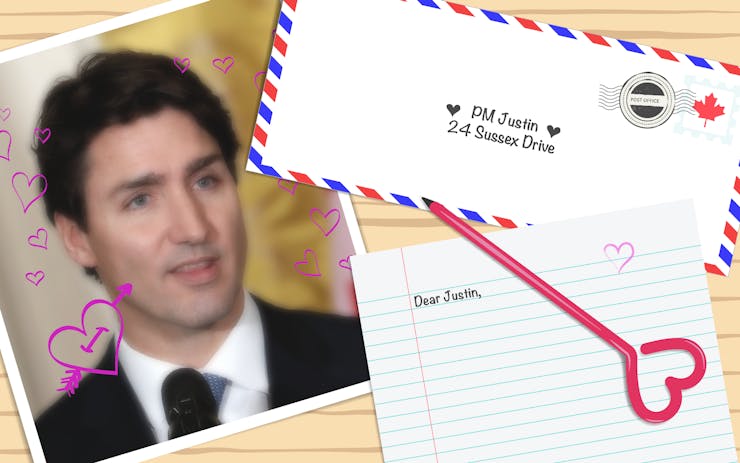Hello Justin! The holiday season is just a few weeks away, which means it’s time for kindness, love, and most importantly, forgiveness. Ah forgiveness, a healing exchange that dissolves contempt and resentment, unburdening us from the wrongdoing of others.
Your office’s silence on pardons and amnesty for 'cannabis criminals' is an action unworthy of your family legacy.
You’ve shown you understand forgiveness, Justin. You’ve begged forgiveness of our Indigenous Peoples, and apologized for Canada’s conviction of those found guilty of gross indecency for committing homosexual acts—a law loosened in 1969 by your father, Pierre Elliot Trudeau, who historically said, “I think the view we take here is that there’s no place for the state in the bedrooms of the nation.”
And yet, despite your understanding of forgiveness, I’m worried you lack the ability to practice it meaningfully. Your office’s silence and side-stepping concerning pardons for cannabis charges and amnesty for those currently convicted or incarcerated for soon-to-be-legal cannabis crimes is an action unworthy of your family legacy.
Earlier this year, Public Safety Minister, Ralph Goodale said, “The Trudeau government is not considering a blanket pardon for people with criminal records for possessing small amounts of the drug [marijuana]…It is important to note that as the bill moves through the legislative process, existing laws prohibiting possession and use of cannabis remain in place, and they need to be respected.”
I realize there’s concern of a cannabis free-for-all gripping our society as we approach July 1, but this is about logic: If a person is arrested in possession of 30 grams of cannabis or less sometime in the next six months, is it really reasonable for that person to be charged? Is ethical or even practical to entangle them in the legal system? And should those convicted and/or currently imprisoned for such a crime—one that will soon be totally legal—really continue to live in a criminalized world? If the answer to any of these questions is yes, I’d sure love to know why.
While I’m chasing down explanations, brace yourself for a future interrogation on the newly announced excise tax—a one dollar per gram tax that’ll apply not just to recreational sales but also medical cannabis. Do you seriously want to make it more expensive for people with cancer, HIV/AIDS, or chronic pain to access their medicine? Are we really that worried about healthy people faking sick to access a legal drug?
62% of Canadians would support a blanket pardon for cannabis possession offences.
Just for fun, let’s project ourselves into the future: The year is 2045, your own child serves as Prime Minister because this is how we choose leaders now. They stand before a media scrum to deliver a heartfelt apology to Canadians whose lives were derailed by cannabis offences, before the drug became legal. I suspect this vision is not Pierre-approved.
Your government’s reluctance to face this issue makes me think they haven’t read the recent Nanos Research poll indicating that 62% of Canadians would support a blanket pardon for cannabis possession offences. That’s 10% higher than your latest approval rating, by the way. So how do you put into practice what we, the people want? Simple, blame it on the scientists.
Researchers at the C.D Howe Institute released a report asking the government to consider pardons as well as dropping outstanding charges to achieve a practical, sensible goal: to free resources for the legalization process itself. And while we’re at it, C.D Howe also wants you to consider pardoning people who have been convicted for illegal possession of cannabis but have no other convictions, and have not been charged with any other Criminal Code offence. Humane, practical, forward thinking, modern and it saves money? Our next Prime Minister Trudeau would be proud.
Now I’m not a fancy, non-profit think tank, but I would ask that you add streamlining the pardon process to your list of things to consider. As it stands, this is a rigorous (and confusing) application process that can begin only five years after a sentence is completed. This time-served, half-decade hangover effectively makes the road back to employment in our desperate job economy all the more difficult to survive.
The charges are piling up, the legal system continues to bloat beyond its capacity, the law is indeed erroneous, and the time to fix it is now.
I will give you half marks for hinting that your government would look into changing the laws. But you only did it when pressed by a constituent who challenged you face-to-face at an event.
“We will change the law,” you replied. “We are taking the time necessary to get it right. Then we will move forward in a thoughtful way on fixing past wrongs that happened because of this erroneous law that I didn’t put in place and that I’m working hard to fix.”
Justin, the charges are piling up, the legal system continues to bloat beyond its capacity, the law is indeed erroneous, and the time to fix it is now.
And though cannabis-related offences have been on the decline for the past five years, there were still 55,000 offences in 2016 alone, and about 61,000 in 2015. Without a plan for amnesty and streamlined pardons, Canada faces a great risk: crippling citizens, many of whom are youth, who are simply victims of poor timing and government shortsightedness.
So, this holiday season, instead of dodging the question, you need only stop and ask yourself if you want to be remembered as a leader who will need forgiveness for his unfair actions, or one who applied reason, compassion, and practicality to allow many Canadians to avoid being meaninglessly embroiled in the legal system.
As they say over at C.D Howe, just “consider” it, okay?
Kate





